Opera 41: performance improvements, Windows 64-bit builds
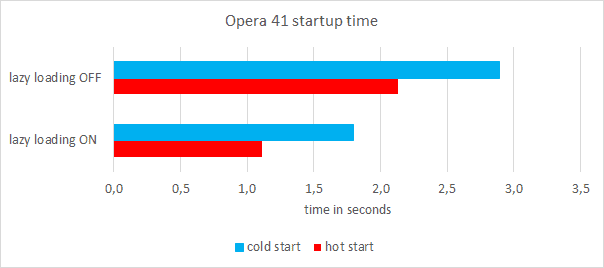
Opera Software released a new beta of Opera 41 to the public yesterday that promises performance improvements in several key areas.
In short, Opera 41 starts up about 48% faster, decreases cpu usage by 30% when using video pop-out functionality, and reduces battery consumption during video conferences by 30% as well.
Tip: in case you have not yet, read our Opera 40 release guide that covers all major new features in the browser.
So how is that achieved? Lets find out!
Browser startup time improvements
Opera used the same startup mechanic as Google Chrome. This should not come as a surprise as it shares much of its code with the Google browser.
Google Chrome loads all open tabs by default when you start the browser. If you have one, ten or one-hundred tabs open, they all get loaded during startup. This may slow down the browser as you can imagine.
Other browsers, Firefox for instance, use lazy load tech to load only the active tab on start. The method speeds up the start of the browser significantly and reduces lag during that time on top of that.
Opera 41 ships with a similar system that prioritizes the active tab and pinned tabs during browser start. The start of background tabs is delayed in Opera 41 and newer which reduces browser start time by about 48% according to Opera Software.

As always, your mileage may vary depending on how many sites you have pinned, how many background tabs you have, and the active tab.
A test performed by Opera Software on Opera 41 with 10 browser tabs saved as a session reduced the cold start and hot start up time by about a second
The feature is only beneficial to Opera users who have configured the web browser to load the last session on start.
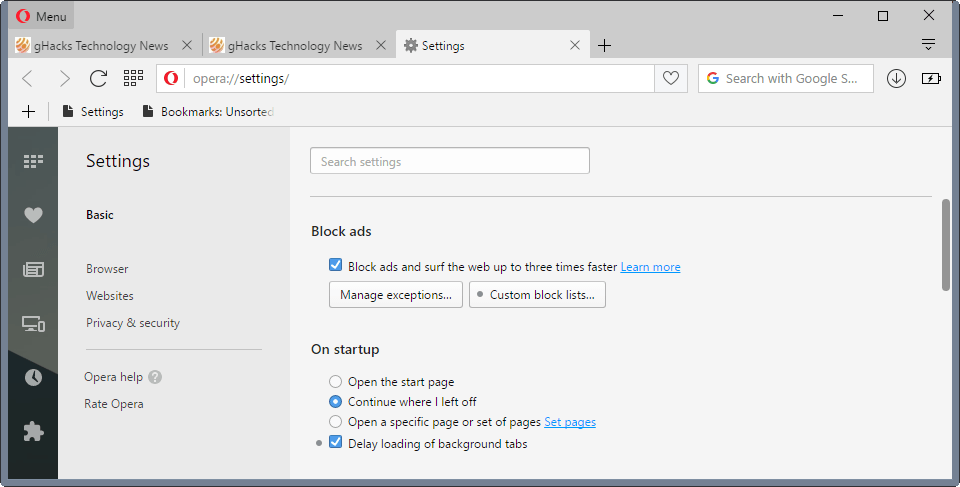
The lazy loading or delayed loading of background tabs in Opera can be disabled in the preferences:
- Load opera://settings/ in the browser's address bar.
- Select Browser on the left.
- Scroll down and enable "show advanced settings".
- Go back to Basic.
- Remove the checkmark from "delay loading of background tabs".
Video Conferencing improvements
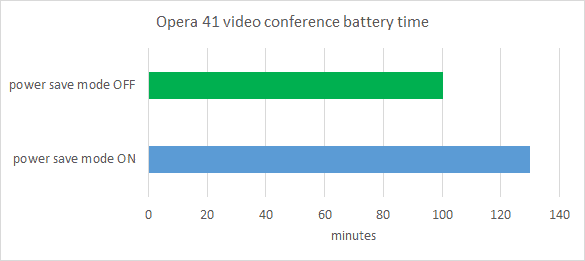
Opera 41 supports hardware acceleration when it comes to video codec use in the browser. This means that the browser will make use of hardware acceleration by default when doing video conferencing via WebRTC.
According to Opera Software, this improves battery time by 30% in Opera 41.
Please note that this will only kick in if Battery Saver mode is enabled. Opera users may disable hardware acceleration in the browser in the following way:
- Load opera://settings/ in the browser's address bar.
- Switch to the Browser section.
- Scroll all the way down until you find system.
- Remove the checkmark from "Use hardware acceleration when available".
Video pop-out Improvements
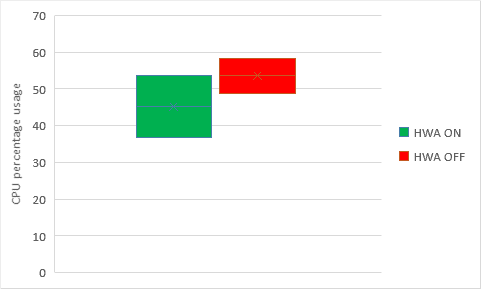
Opera 41 uses hardware acceleration if supported for its video pop-out feature as well. Video pop-out, introduced in Opera 37, allows you to display videos embedded on sites in a small window that acts independently.
Opera states that hardware accelerated video pop-out uses up to 30% less cpu.
Windows 64-bit version
Opera Software plans to launch a 64-bit version of Opera Stable when the stable channel reaches version 42.
Personal News
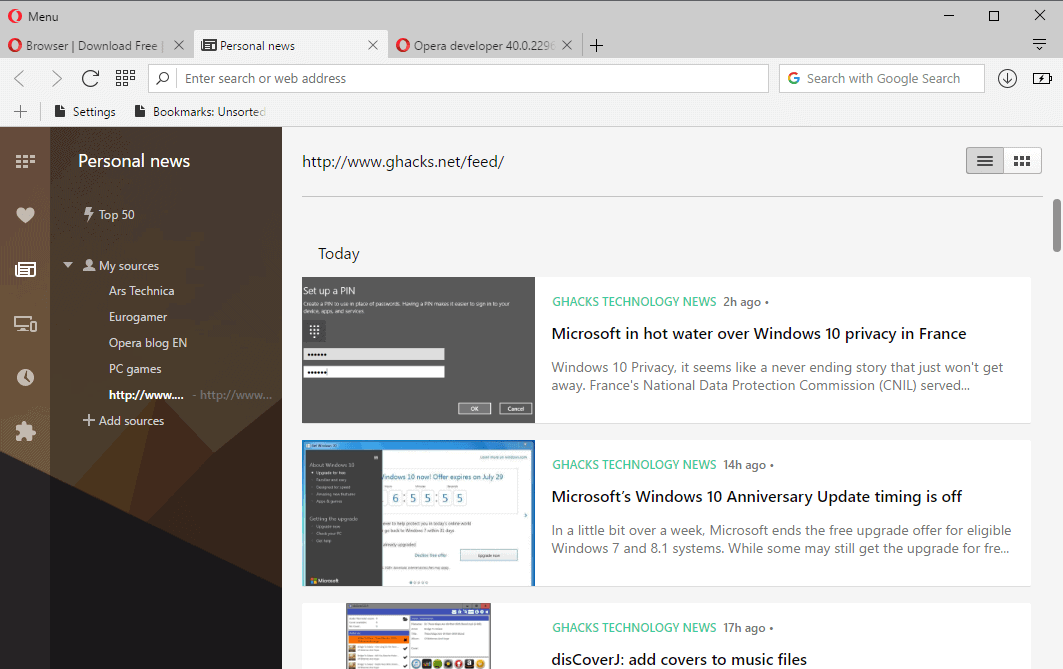
Personal News was introduced in May of this year in Opera, and improved shortly thereafter in Opera 40.
The feature is a RSS / news reader that is built-in to the Opera browser. While not as flexible or sophisticated as standalone RSS readers, it may do for users who prefer to have news attached to the browser directly.
Opera continues its work on Personal News in Opera 41. Among the many changes is an option to enter any url to have the module pick up any RSS feed available at the URL, history navigation, web feed previews, and less recommendations.
Now You: Have you tried Opera 41 already? What's your take on the new version?



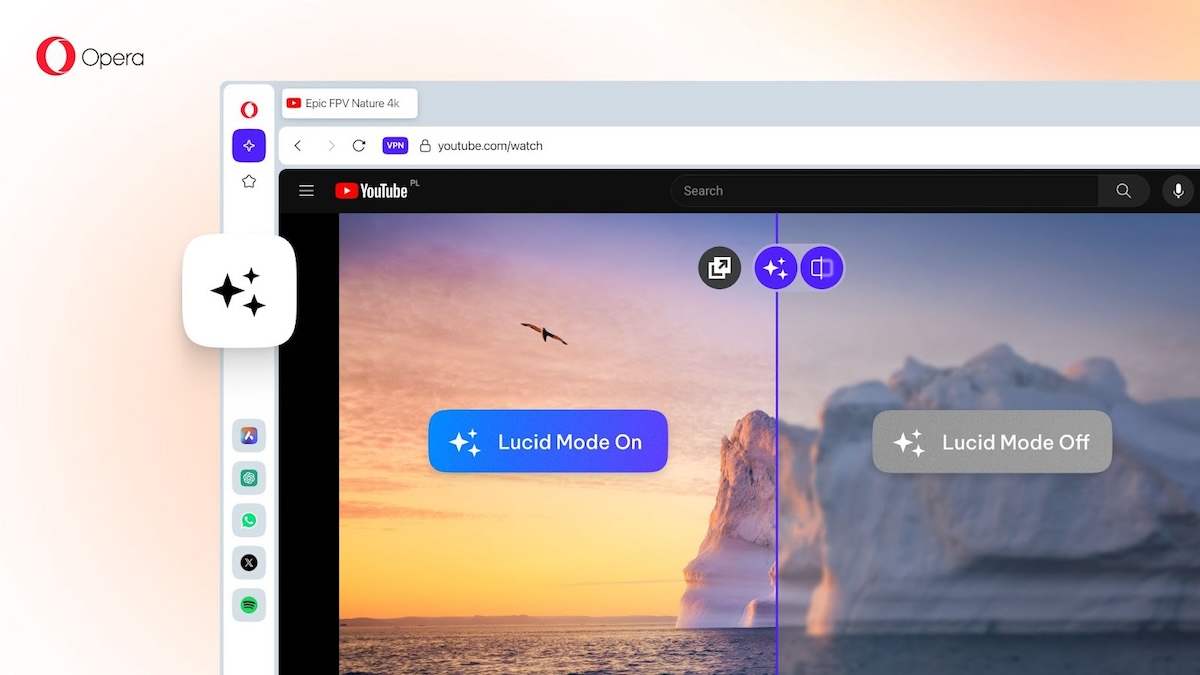

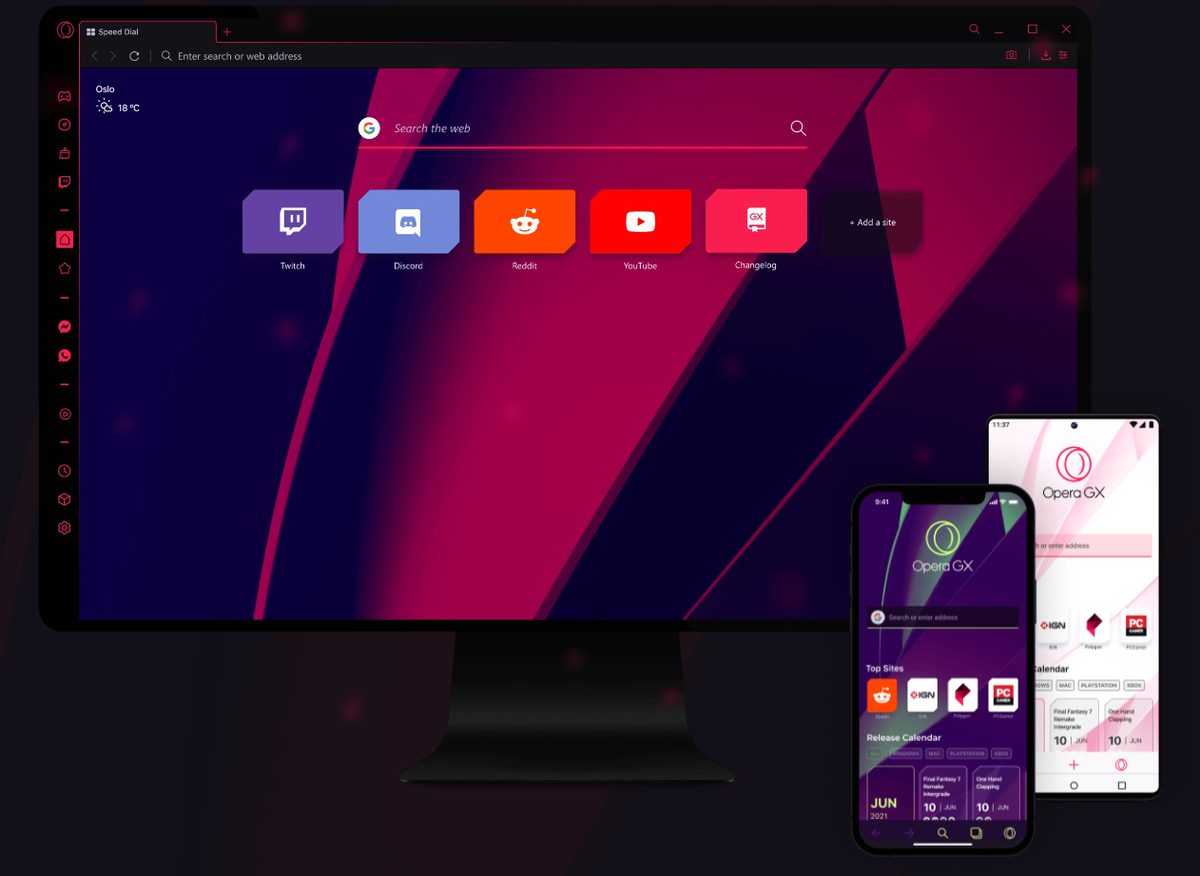
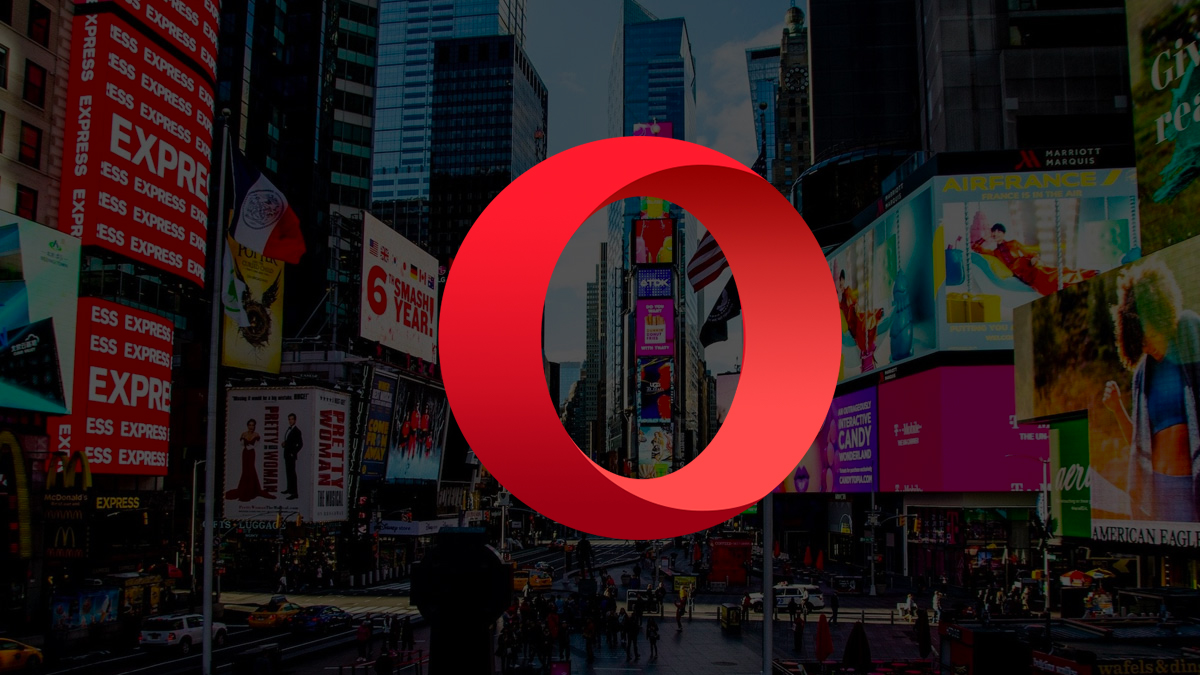
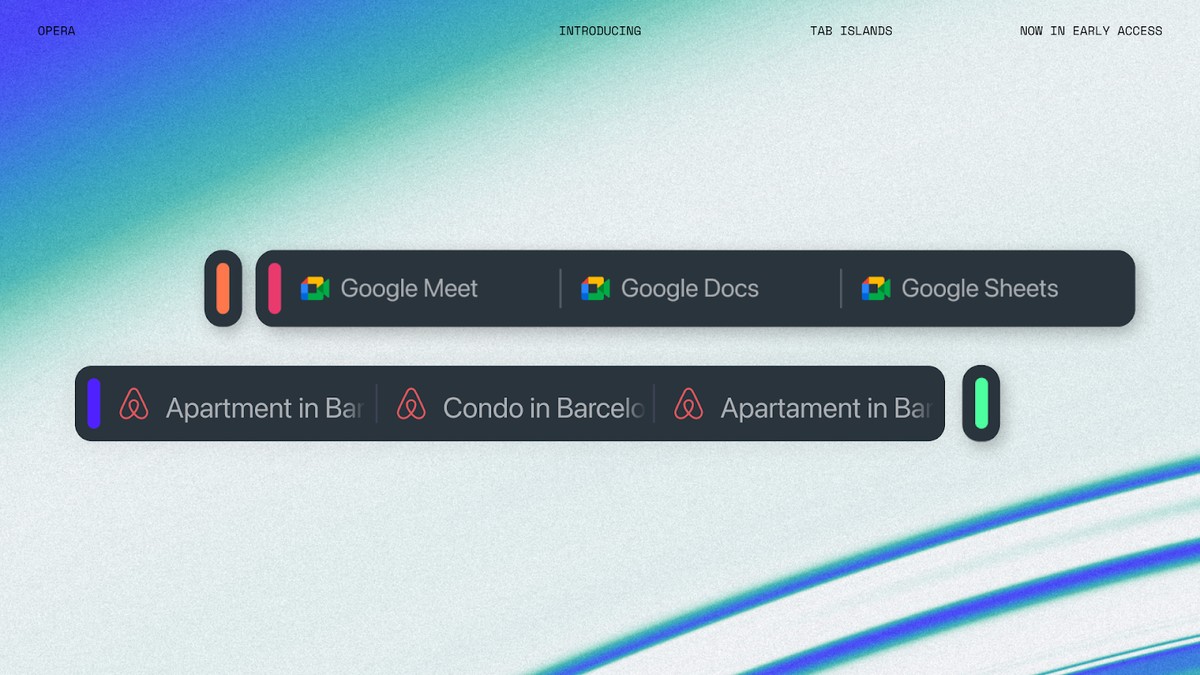
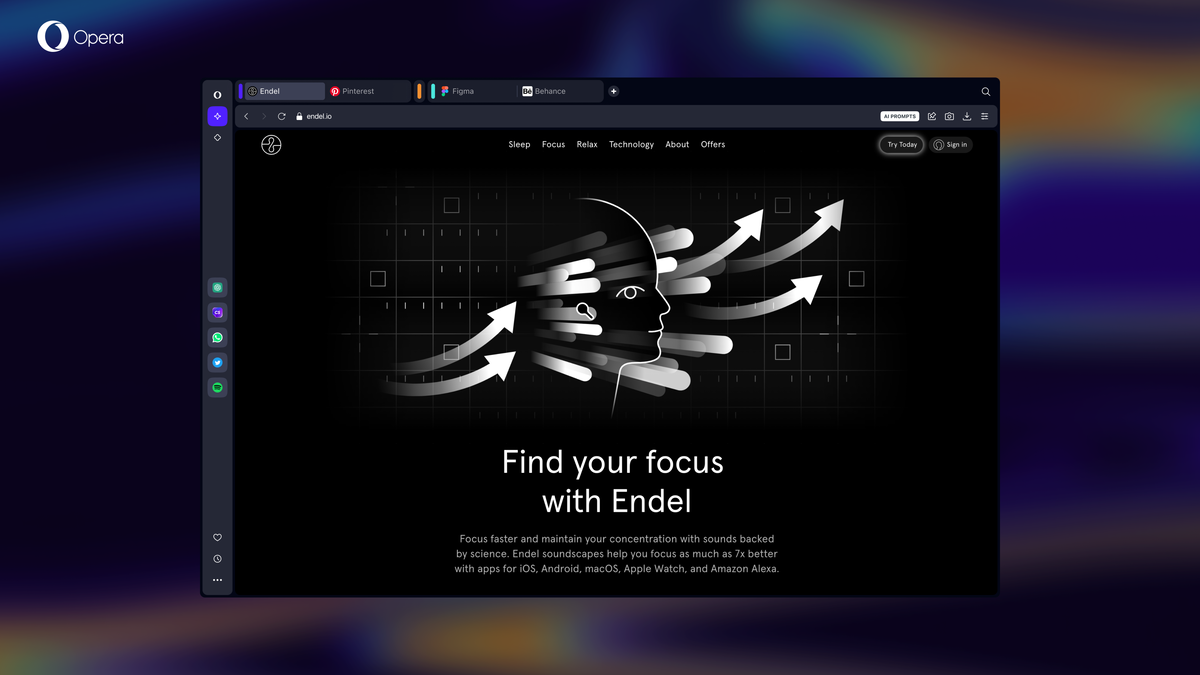










Martin, Do you know or the Opera 42 64 bit version will support Sun Java (runtime environment)?
I don’t know unfortunately. My guess would be no but we know for sure once it is released.
As far as I know opera is using chrome engine. Therefore everything deep techy comes from google.
Sadly chrome and opera are only made for 90% of the users which do not open more than 10 tabs in one session. The other 10% who are using 100 tabs are not able to do this due to silly tab shrinking.
Firefox ist the only way to go
I wish Mozilla would quicken Firefox. It starts up slower than Opera 40. I look forward to the
64 bit version of Opera.
Thanks for the article, Martin.
Mozilla is always the same old story: want to make the internet safer for users but they take a long time to do it. I can speak for my self, firefox does not has any significant update for ages… I quit using Firefox after 6 years. I am using Vivaldi but…. still in progress, you know? maybe I’m gonna try opera now, that beta build, 41.
Mark, I hope you don’t think that 64-bit means faster and better. There is no real reason that I can think of where a browser needs to be 64-bit. The only time that 64-bit will be mandatory in a browser is when Intel/Msoft stops supporting 32-bit software as they did with 16-bit.
The 64-bit is essentially, all about handling very-large numbers and unless you are doing CAD or rocket engine heat analysis simulations in your browser, 16-bit would still be fine. :)
Start up speed is all about making stuff ready to be used. Most slow start apps are making too much stuff ready that generally is not needed by most users. Win8 was faster than win7, win7 was faster than Vista etc as they stripped out loading stuff at start-up then fed it in after start-up for those that might need it. Most don’t need it so just get the OS into a stable and adequate state, then feed in the extras. Same for browsers, just get it stable and able to open a basic HTML webpage while you get the Javascript etc ready and oh, yes, load all the plug-ins.
64-Bit is largely a marketing exercise to keep selling more CPUs. More bits must mean better. Not really, well, unless you need them for Fibonacci development. :)
You are probably right. I am using the 64 bit version of Firefox.